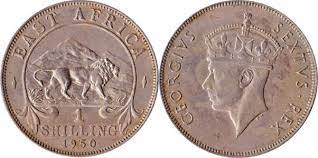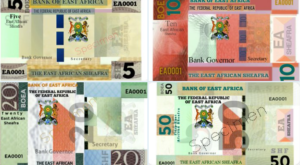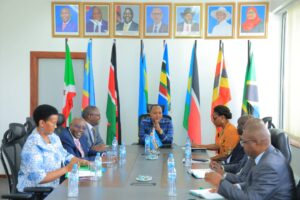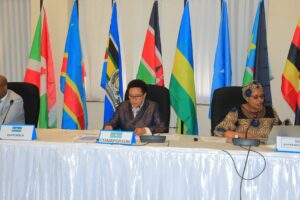
The East African Common Currency Dream May Never Become a Reality
A Single Currency, A United Region
The dream of a unified East Africa, bound not just by geography and history but by a common currency, has captured imaginations for decades. As a proponent, I recently expressed optimism following the proliferation of social media discussions on its possibility in the near future. With the launch date for the currency originally set for 2024, hailed potential benefits include smoother trade, increased foreign investment, and a stronger regional voice.
However, beneath the optimistic veneer lies a complex reality, fraught with historical baggage, economic disparities, and unresolved political hurdles. With the East African Community secretariat yet to show progress towards the formation of a common currency, the dream is perhaps easier dreamt than lived. The acknowledgment of past and current failures on why this may never be understood ought to be explored as a starting point.
The Ghosts of Unions Past

East Africa already has cautionary tales etched in its history with an example of the ill-fated formation of an East African political federation where regional leaders seem happy to discuss and never do anything about it. Perhaps, the spectacular failures of the East African Community Regional Force (EACRF) created to quell M23 rebels in Congo puts the toothless past initiatives of the community into perspective. The reasons for these failures are instructive and indicating of member states that are perhaps uninterested in the much-hyped regional integration and economic success.
Mistrust and national interest, whether justifiable or not, have created challenges in the achievement of regional success in the past. Unequal economic development among member states, coupled with political instability, for instance, has created a situation where stronger economies (like Kenya) are wary of subsidizing weaker ones. Mutual suspicion and lack of political will have occasionally doomed the success of initiatives in the region with the common currency aspirations likely destined for a similar fate.
A Tale of Divergent Economies and Currency Regimes
The economic landscape of East Africa today is far from uniform. Nations within the region have faced economic condition fluctuations with Kenya, the de-facto region’s giant that boosted impressive growth rates and progress in yesterdays now facing competition compared to its counterparts. While the giant’s currency weakened by 18% and 13.8% relative to Uganda and Tanzanian shillings, the latter has a better economic performance and stability compared to Burundi and South Sudan which have always lagged. Moreover, Congo and Somalia, recent inductees into the regional trade bloc have faced constant political instability and economic stagnation that make for divergent economies and currency regions in the region.
“This is not to say that the dream of a common currency is dead on arrival although it must be pursued cautiously and strategically.”
Arguably, a one-size-fits-all monetary policy, dictated by a central bank as foreseen, might stifle growth in some nations while stoking inflation in others. If history is anything to go by, consider the Eurozone crisis where fiscally prudent nations like Germany chafed at bailing out profligate southern members. The diversity in the East African economies makes it challenging to adopt a homogenous currency regime and largely is a fueling room for mistrust between stronger economies seen as a loss of economic superpower and influence. It could be argued such tensions have limited the actualization of a common East African currency and could continue being a stumbling block.
Kenya, The Reluctant Hegemon
Kenya, by its size and economic clout, is often seen as the potential leader of this monetary union. However, Kenyan dominance might be met with resistance. Smaller nations might fear being relegated to junior partners, with their economic interests subordinated to Kenya’s. Furthermore, Kenya itself might be hesitant to relinquish control over its monetary policy, a powerful tool for managing its economy. Challenges in dealing with macroeconomic policies, particularly in the choice of exchange rate regime and the associated monetary policy might be a source of in-fighting between member states in a pissing contest based on past economic performances.
With discontent and mistrust likely to impede critical common currency-related policies in the face of economic handles, the most critical factor might be political will. The member states would have to cede significant control over their economies to a supranational authority with bigger economies like Kenya unlikely to give up control while others would be reluctant to be treated as junior partners. Actualizing the common currency dream would therefore necessitate a level of political trust and cooperation that has, at times, been lacking in the region. It’s not lost on the region that historical tensions, border disputes, and occasional spats over trade and migration have often slowed efforts for regional integration in the bloc.
Building Blocks Before the Grand Design
This is not to say that the dream of a common currency is dead on arrival although it must be pursued cautiously and strategically. East African nations should focus on strengthening regional trade ties, harmonizing tax regimes, and fostering deeper economic interdependence. This will create a more unified economic base for a common currency potentially leading to the actualization of the aspirations.
Citizens and leaders alike face the challenge of building political cohesion despite the represented diversities. There is a need to invest in trust-building measures, addressing historical grievances, and fostering a sense of shared destiny. A strong East African identity that transcends national borders, is crucial.
Similar to the European Union’s Maastricht criteria, East Africa should establish clear economic benchmarks that member states must meet before joining a monetary union. The region would require the region to have a single monetary policy and a single central bank which has proved challenging. In the current economic challenges, East African nations have diverged from a common monetary policy to deal with rising inflation and fluctuations in exchange rates indicating the extent of the challenge. Greater fiscal discipline and economic stability are critical in dealing with asymmetric behaviors among monetary union partners for the creation of a common currency regime.
The path to a common currency in East Africa is long and arduous. There are formidable economic and political challenges to overcome. But by learning from past failures, fostering deeper economic ties, and building political trust, the dream of a united East Africa, bound by a common currency, can inch closer to reality. It is a journey, not a destination, and one that requires unwavering commitment from all stakeholders.
Muoki Musila is an Kenyan based economist. These are the writer’s own opinions and do not necessarily reflect the viewpoints of Liberty Sparks. Do you want to publish in this space? Contact our editors at info@libertysparks.org for further clarification.



